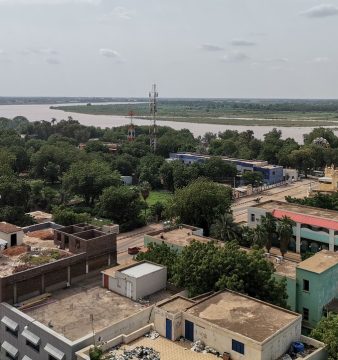Retiring as a Trainee – The Hard Truth About Sudan’s Job Market

During their last year at university, students dream of a bright future, full of success and celebrations. They believe the road will be paved for them once they receive their long-awaited university degree, and they will continue to fulfil their dreams of good jobs, high salaries, superior ranks, incentives, training courses and scholarships. Their dreams expand to opening their own business and extend to grand wedding ceremonies and honeymoons abroad.
But these dreams are interrupted by reality when the student wakes up from bed and finds himself in one of the queues in front of the National Service window. He would be reaching the counter at the crack of dawn but by the time he gets to the window, he would find it shut as the working hours would be over for the day. And thus begins the challenging journey of finding employment which covers many years of unemployment and stagnation.
Soon, despair sets in and he waits, hoping things will turn around for him. Every now and then, he goes for job interviews but always, towards the end, he is asked: ‘Who is backing you?’, indicating he needs some kind of wasta or influence for things to move forward easily.
Even after getting employed, he is considered as a trainee and not an employee. However, he is still hopeful and views this as progress, a step towards the long-awaited job. He waits in anticipation, to be appointed as a regular employee, after the expiration of the training period, which should not exceed six months in accordance with the Labor Law. But any law that governs our beloved Sudan does not know what this desolate occupation entails. He spends years as a ‘trainee’ within arms-reach of his dream employment.

He leaves his post for one of the newer, fresher graduates who are just starting on their careers. But yet, he is also at the beginning of his career. After the arbitrary job, he has the opportunity to work under the name of a collaborator, which distinguishes him from being a trainee but with a very low salary. He soon becomes 30, continuing to serve for years at a so-called ‘job’, which is unreliable. He is subjected to many psychological and social pressures that affect his personal life and relationships. He is then forced to leave his beloved as he is unable to marry and provide for a family. He sits and sings:
‘aghalib dameiin waitasbar ‘aqul yaallh subrni, zman qaluu alghiram qismat hqyqt alqismat ma balayd’
‘اغالب دمعي واتصبر اقول ياالله صبرني ، زمان قالوا الغرام قسمة حقيقة القسمة ما بالايد’
This is the story of thousands of young men and women in Sudan, who seek an education in the hopes of pursuing a successful career and fulfilling their goals and dreams. However, once they graduate, many are met with the despair of unemployment. There are at least two million unemployed men and women in Sudan. There are people who are actively looking for jobs but cannot find anything. According to Trading Economics, the unemployment rate in Sudan is expected to be 12.50% by the end of this quarter. Unemployment rate in Sudan has remained unchanged at 12.70% in 2016 and in 2017. Unemployment rate in Sudan averaged 13.30% from 1991 until 2016, reaching an all-time high of 14.20% in 1997 and a record low of 12.70% in 2016. According to Trading Economics, in the long-term, the unemployment rate in Sudan is expected to continue to be around 12% in 2020.
 Husam Aldeen Mohammed is a journalist, author and producer based in Sudan, working with several Sudanese channels, newspapers and magazines, covering a variety of news stories in Sudan.
Husam Aldeen Mohammed is a journalist, author and producer based in Sudan, working with several Sudanese channels, newspapers and magazines, covering a variety of news stories in Sudan.




